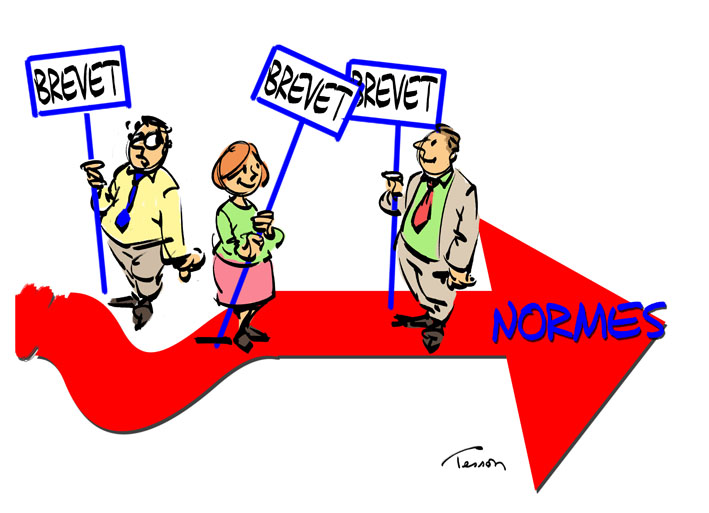AN INCREASINGLY STANDARDISED WORLD
At the crossroads of objectives for quality, user and consumer safety, the environment, sustainability and competitiveness, standardisation has become a crucial process.
AFNOR works to provide the first group with the tools that will help reassure the second group. It is therefore natural that it applies rules of conduct to itself in all its relationships whether they be social, economic or environmental.
No industrial sector is exempt from standards:
Do you manufacture toys? It’s difficult to ignore the fact that the CE mark is essential to access the European market, and indicates compliance to benchmark standards.
- Are you involved in sports? User safety, environmental issues, material toxicity and recycling problems have led to the implementation of standards.
- Do you work in the food industry? Product preparation, distribution and packaging all require standards.
STANDARDS: MERELY A CONSTRAINT?
It all seems very restrictive, especially for an SME. How do you learn about the standards written by “goodness knows who”, “doubtless some out-of-touch technocrats who have never worked in the corporate world”? That’s an extra obstacle for entrepreneurs!
In reality, the entrepreneur is not someone who loses out; he knows how to take advantage of any situation and the “constraint” of standards represents a formidable opportunity.
Firstly, a standard is not an unjustified complication. It represents a “must do better” rigour, which is great for an SME.
This rigour applies to everybody, all the competition and therefore balance is respected. More precisely, this situation benefits those who are more responsive, who know how to adapt their products to comply with new standards, who can even anticipate them and perhaps influence their creation.
How do you respond to new constraints? By innovating… And when you are innovative, you take risks and sometimes success follows. Why would we not discuss the correct use of patents and more broadly of intellectual property?
WHAT DO SMEs REPRESENT IN THE ECONOMIC LANDSCAPE?
SMEs are predominant in Europe. They represent 99% of all businesses, around 70% of jobs and 50% of added value. Among these SMEs, a very large proportion[1] is made up of very small businesses with less than 10 employees.
Within this context, the role of SMEs in the economic landscape is crucial and the competitiveness of Europe and France relies on their ability to develop, win markets and create jobs.


